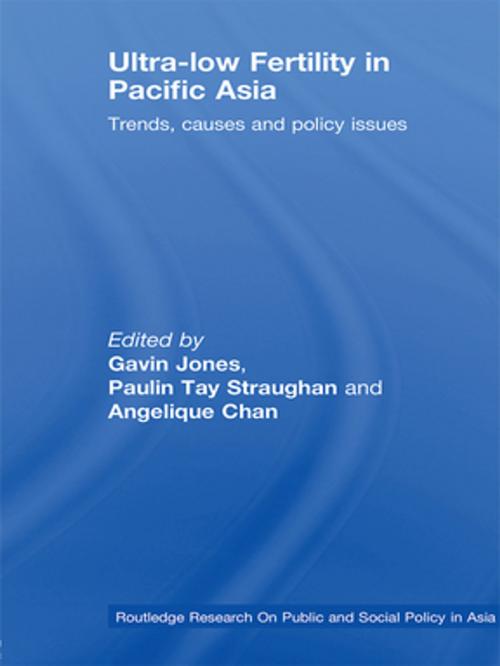Ultra-Low Fertility in Pacific Asia
Trends, causes and policy issues
Nonfiction, Social & Cultural Studies, Social Science, Cultural Studies, Ethnic Studies| Author: | ISBN: | 9781134032099 | |
| Publisher: | Taylor and Francis | Publication: | September 25, 2008 |
| Imprint: | Routledge | Language: | English |
| Author: | |
| ISBN: | 9781134032099 |
| Publisher: | Taylor and Francis |
| Publication: | September 25, 2008 |
| Imprint: | Routledge |
| Language: | English |
Japan, Singapore, Taiwan, South Korea and Hong Kong SAR are among the very lowest-fertility countries in the whole world, and even China has reached fertility levels lower than those in many European countries. If these levels continue over long periods East Asia will soon face accelerating population decline in addition the changes in age distributions in such populations raise major new questions for planning of economic and social welfare.
This book brings together work by noted experts on the low fertility countries of East Asia with an up-to-date analysis of trends in fertility, what we know about their determinants and consequences, the policy issues and how these are being addressed in the various countries. Its role in bringing together information on policy trends and initiatives of a pro-natalist kind adopted over recent years in these countries is extremely important, as is the fact that the discussion of these pro-natalist policies is set in the context of a thorough analysis of what has driven fertility so low in these countries.
Ultra-Low Fertility in Pacific Asia is invaluable to students and scholars of East Asian public and social policy, as well as fertility studies more generally.
Japan, Singapore, Taiwan, South Korea and Hong Kong SAR are among the very lowest-fertility countries in the whole world, and even China has reached fertility levels lower than those in many European countries. If these levels continue over long periods East Asia will soon face accelerating population decline in addition the changes in age distributions in such populations raise major new questions for planning of economic and social welfare.
This book brings together work by noted experts on the low fertility countries of East Asia with an up-to-date analysis of trends in fertility, what we know about their determinants and consequences, the policy issues and how these are being addressed in the various countries. Its role in bringing together information on policy trends and initiatives of a pro-natalist kind adopted over recent years in these countries is extremely important, as is the fact that the discussion of these pro-natalist policies is set in the context of a thorough analysis of what has driven fertility so low in these countries.
Ultra-Low Fertility in Pacific Asia is invaluable to students and scholars of East Asian public and social policy, as well as fertility studies more generally.















